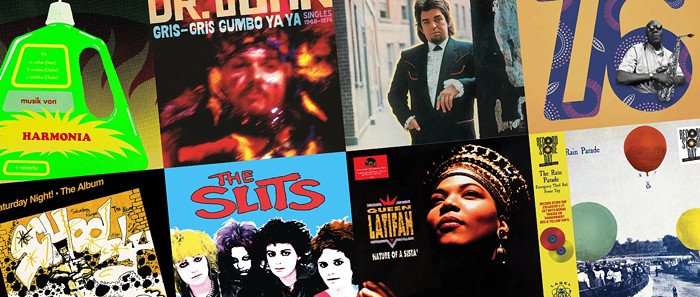I know lots of girls who swoon at the sight of a guitar on a waifish chest or a pair of drumsticks and a cocky smirk. Not me.
However, after watching performances by Marigold--who are barely old enough to buy beer--I must reluctantly admit that they are fucking adorable, okay? I watch Marigold play in a dark club, and I feel like I have to take them home... and make them sandwiches and scrambled eggs. I don't want to date them; I want to drive them to soccer practice.
Despite their slightly unkempt, lanky, T-shirt-boy aesthetic and goofy between-song banter, Marigold somehow avoid sounding young and green onstage. This Eugene, Oregon-based band conveys earnest passion, an unabashed sense of fun, and razor-sharp indie rock/pop instincts while fearlessly showing off catchy, pretty harmonies with undeniably serious songwriting--a little bit of Beatles and a little bit of Grifters. "Winter," one of their most polished, melodic singles, could easily be on Top 40 radio tomorrow; some of their less Billboard-friendly songs display their strong sense of authenticity. I talked with the band after a recent show, and struggled against the Jewish mother within as I fought the urge to give them lunch money and pajamas with feet.
What's more important: lyrics or music?
Nathan Maricle (drums): It's all a big piece of sound, and they both intertwine, and that's when it makes... magic. (The rest of the guys burst out laughing at him.)
Travis Ferguson (vocals, guitar): They're equally important, but generally, the music seems to come first and the words come a bit later. I mean, at first we sit around and end up beating out song forms, then later there's more of an inspiration for what's being said.
I'm super-curious about Eugene. There can be such an allure and mythology to small-town bands and tiny scenes, like Olympia; if you're a band from a big city, it almost seems like you're not as appreciated. Do you think there's something to that?
Nathan: I think that's a really valid point, because the only people we're around, 99 percent of the time, are each other. Somehow that affects our music.
Adam Anderson (bass): In our case, we're one of very few bands who do anything like we do. You know, music in Eugene tends to be a lot more... hippie jam....
Entire band: Yeah! Hippie jam!
Adam: ...and Grateful Dead rip-offs. So if you're the only band in town doing what you're doing, you have a tendency to play it up more....
Travis: It's propelled us into something we can be proud of, actually.... I think there's a scene in Eugene that, like, tries to "keep up," and it's never the same. It could be ska... punk is always there... and there's a little mod scene....
Adam: And anything that sprouts in Eugene has a tendency to get up and move to Portland. We've been the steady--we stayed home.
What's your situation with record labels, then? I'd heard there was some drama.... [At one point, Marigold was signed to Outpost, a subsidiary of Interscope. Outpost was disappointed in Marigold's refusal to record conventional pop singles.]
Nathan: It's like--we've been signed; we're not signed; we're signed; we're not signed.... But now, we want to do our own record, and if someone would like to pick it up, that would be exciting.
Travis: We were dangerously close to the "boy band" thing [when we first signed with Outpost]. They were really trying to get the Goo Goo Dolls out of us, and we were like, "Nooooo...."
Adam: I think we got signed basically off our looks and the [fact that] other labels were interested.
Nathan: Once we got past the initial romance of, "Wow! We finally made it!" we realized what we made it into, and we thought, "Do we play the game?"
Travis: [Outpost executives] made the mistake of putting money in our pockets, and saying, "Go make a record." Well, we did.
Adam: They just couldn't put it through their marketing matrix. They didn't know what label to slap on it. So they decided not to slap one on it at all.


















